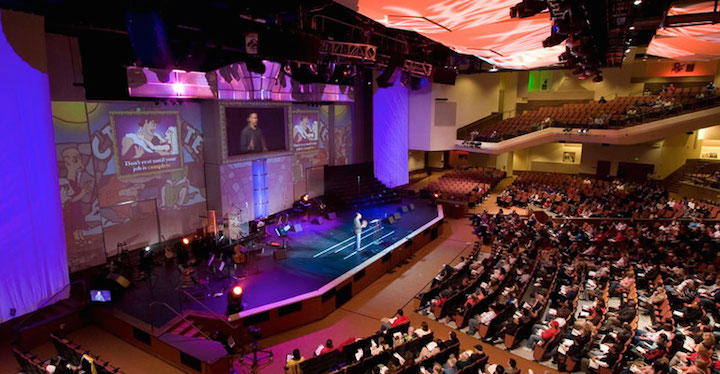It’s safe to say that the traditional expression of church has varied little in the Western world. This form worked well when the dominant culture was agrarian, most people were uneducated and illiterate, and books were either unavailable or very expensive. Information and stories were spread by people who had dedicated their lives to learning, reading, and teaching. Many of these were pastors who received more schooling than most before going out into the world to build a church. Farmers from miles around would put on their “Sunday best” and walk, pile into wagons, or ride to church each Sunday morning. Together they’d sing and then sit and listen to the minister or priest teach from the Bible and his brand of theology. Afterward, they’d catch up on how life was going, learn how they could help each other, and perhaps even share a meal.
WHAT WAS THE APPEAL OF CHURCH?
It still sounds appealing in many ways, doesn’t it? There’s a simplicity to it that makes me feel a little nostalgic. And there’s nothing wrong with that. In fact, there are three important things we can learn from this model:
- The people who came to church were drawn together by a COMMON faith experience. In rural settings, commonality just happened because there were very few, if any, choices in denomination or Bible translation. As society transitioned from being rural to urban, commonality was still important—we were just able to decide which church we felt most comfortable in ethnically, denominationally, and geographically.
. - Because most people were either illiterate or didn’t have the resources to educate themselves, Christians needed a dedicated person — a pastor — TEACHING them in a dedicated, centralized place—a church building. This hasn’t changed much in recent times. Even as American movements from the Big Tent Revivals through the Emergent Church introduced metaphors and stories as the dominant mode of evangelism and discipleship, teaching remained the main attraction for church-goers.
. - Since people were drawn together each Sunday often from many miles away, they had the opportunity to experience COMMUNITY — loving and supporting each other, sharing meals and sacred rituals, before going their separate ways again for another week. This too survived into contemporary times as suburban churches flourished and people poured in from miles around.
POST TEACHING-CENTRIC CHURCHES
These elements are the core of what we call the teaching-centric church, and they were an important part of life for hundreds and hundreds of years.
But times have changed. Most people in the Western world are no longer illiterate. Books have become inexpensive and easy to get, information can now be accessed and transmitted even more cheaply via audiobooks and podcasts, live events and TV programs, websites and Internet videos; those who cannot read can still find the information they want. We no longer need someone to read the Bible to us, but as we read for ourselves, we also decide which translation we like best. Pastors are still educated in a broad range of subjects, but they are no longer the sole source of wisdom — for example, a marriage and family counselor would have greater insight and understanding into relationships, a small business owner would have more insight into the nature and use of money, and the average person might have a deeper grasp of a book of the Bible after doing their own intensive study.
THE PURPOSE OF THE CHURCH HAS RADICALLY SHIFTED
It shouldn’t be surprising to us, then, that attendance in teaching-centric churches has been rapidly declining. But we are still training our ministers and church leaders how to perform in jobs that are rapidly disappearing in an industry that has radically shifted. We still need leaders and ministers to rally and organize people, but they need to learn how to lead in church environments that are becoming increasingly service-centric. What are the elements of a service-centric church? And how does a church transition from a Common Teaching Community to a Common Cause Community.
This is a conversation we’re having at the Hatchery. Hope you’ll join us.

